What does cultivation really mean?
Cultivation is about changing our own behaviour. The objective is to attain the highest level of realisation, or in other words to become fully enlightened. There are three aspects of cultivation: Discipline of one’s own actions, regulation of one’s own speech and elevating one’s morality. In fact, once we understand that negative karma is a major force that binds us in the mundane world’s web, and that karmic obstacles stem from our “conduct, speech and thought”, it is then easy to understand that the objective of these three aspects of cultivation is to prevent us from creating new negative karma. Discipline of one’s own actions restrains us from creating karma of misconduct, while regulation of speech is to restrain us from creating karma of unwholesome speech. The elevation of consciousness and morality is to guard us against conceiving of any bad intentions, thereby reducing the chances of creating karma of unwholesome thoughts.
修行修什么?
修行就是修正自己的行为,目的是要达到觉悟的最高境界——彻悟。修行有三个方面:行为的规范,言语的禁忌和意识品行的提高。实际上,当我们知道了尘网中孽力占很大成分,而孽障又是来自于“身口意”,那么就很容易理解这三点的目的都是为了避免造孽。行为的规范杜绝身体造的孽障,言语的禁忌使自己不造口业,意识品行的提升又是为了防范意念上的坏念头,从而少造意业。
Our understanding of this principle serves as a benchmark for us to correct our unwholesome behaviour. In doing so, we reduce our karmic obstacles and cease to weave another new web of karmic relationships. However, applying this principle, and the extent to which it can be applied in our lives, will depend on each individual’s level of understanding. For example, your superior may have increased your workload so much so that you are totally occupied, working overtime frequently, while others receiving the very same salary had less work to do. Under such circumstances, you may be able to endure it, refraining from doing anything improper on a surface level, but deep down, are you not truly angry? Why is it so important not to get angry? If you don’t show any anger in this situation, will you be called a coward? What is the right way of thinking?
明白了这些原理,我们就可以以此为基准修正行为,减少孽障,不再编织新的尘丝。当然应用这个原理到生活中去和应用到什么程度取决于每个人的领悟力。比如说:工作单位的领导明显地加大了你的工作量,使你每天埋头苦干还常常加班加点,但别人同样的薪水,可要清闲的多。在这种情况下,你能忍住不骂人,你能忍住不做出格的事,可内心里你能不能真正地不生气呢?不生气又为什么这么重要呢?你不生气,别人会不会认为你是懦夫呢?正确的心态应该是什么呢?
This is all up to us to discover and comprehend. With each question answered, our spiritual state will go one step higher. Different levels of comprehension will give rise to different levels of spirituality. Failure to comprehend will lead you to, for example, comparing your workload with that of others, leading gradually to the harbouring of indignation at the thought of being treated unfairly. This is when you have unwittingly developed negative karma, thinking you are the one who has been victimised. This is how one gradually loses motivation in their spiritual practice. However, as a matter of fact, any effort will pay off eventually. It is often said: “A teacher can only lead you through the door – it is up to you if you are to walk through it and succeed in your spiritual practice.” It is precisely because every individual is different that the problems we individually face are also different. Therefore, it is not possible for the Master to lay out for you all of the answers that require your comprehension. Fortunately, while the approaches may vary, the fundamental guiding principles to abide by remain unchanged. These guiding principles are: Applying the law of cause and effect and karmic affinity to understand the life; adopting the Buddhist practice that the Master expounds to solve problems in your daily life, and; treating the doing of meritorious deeds and the refraining from generating negative karma as guidelines to self-discipline.
这些都要靠我们自己来领悟。每回答一个问题,你的境界就增一分,领悟的不同,境界就不同。如果领悟不出,则会时时比较着别人的工作量,不停地感受着不公平待遇,渐渐地愤恨起来,这时候孽缘早已种下而不自知,反而认为自己才是受害者,渐失道心。其实任何人的努力,最后一定会得到回报。“师父领进门,修行在各人”,正因为每个人所处的环境不同,所遇到的问题也不同,所以师父不可能把每个人要悟的答案都摆在面前供大家选择,但好在万变不离其宗,还是有一定规律可循的,宗旨就是用因果、缘分来理解生活,用师父教的法门来解决生活中的问题,用做功德不起恶缘来作为约束自己的准绳。
In the discussion of the three aspects of cultivation, there is no mention of the accumulation of merits and virtues. But why are merits and virtues regarded as the consequence of our cultivation? It’s because the direct results of the three aspects of cultivation are the performing of benevolent deeds, holding on to benevolent thoughts, and speaking kind words – which are all merits and virtues.
修行的三个方面并没有讲到积功德,那功德怎么会是修行的结果呢?修行三个方面直接的结果就是做善事,持善念,说好话,都是功德。
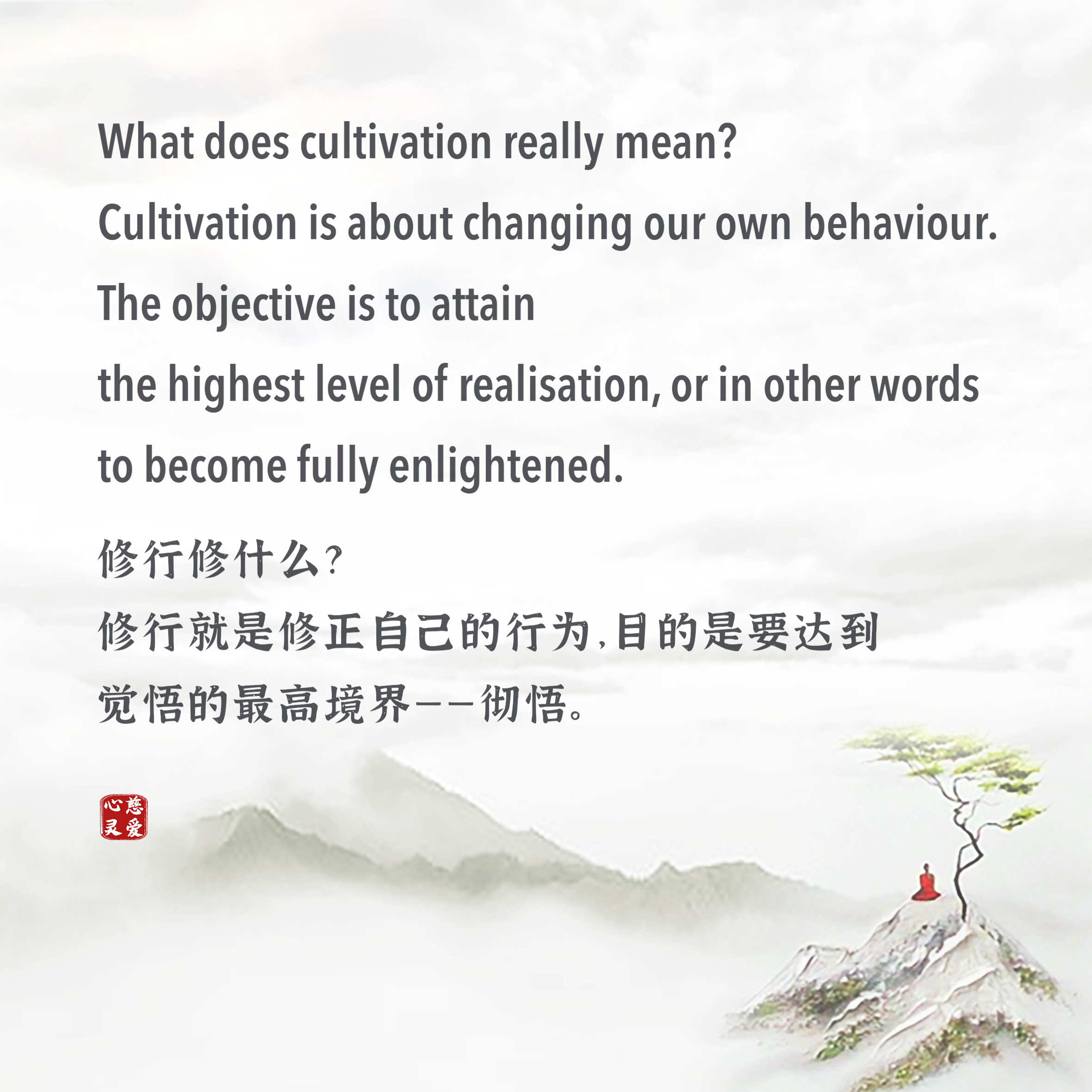
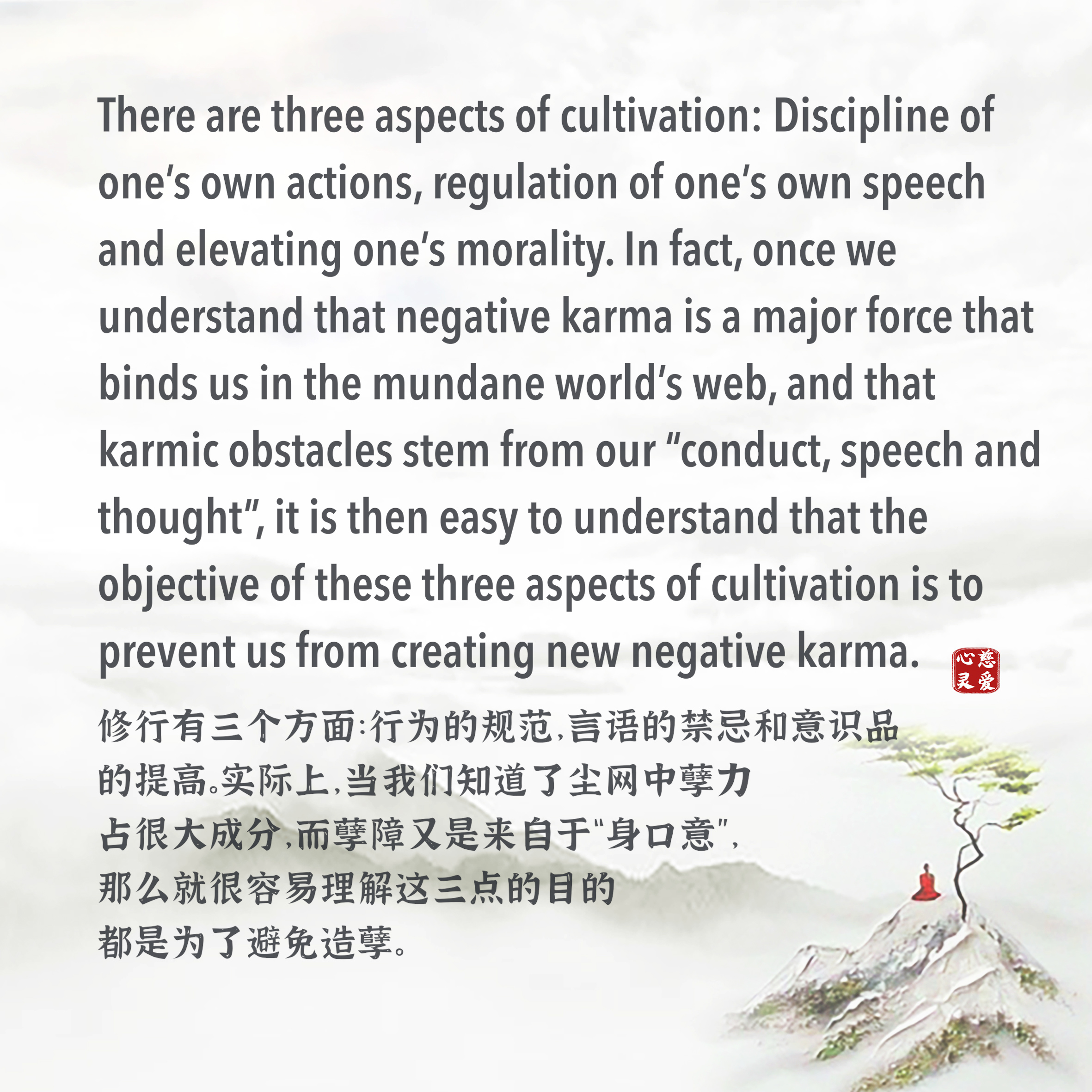
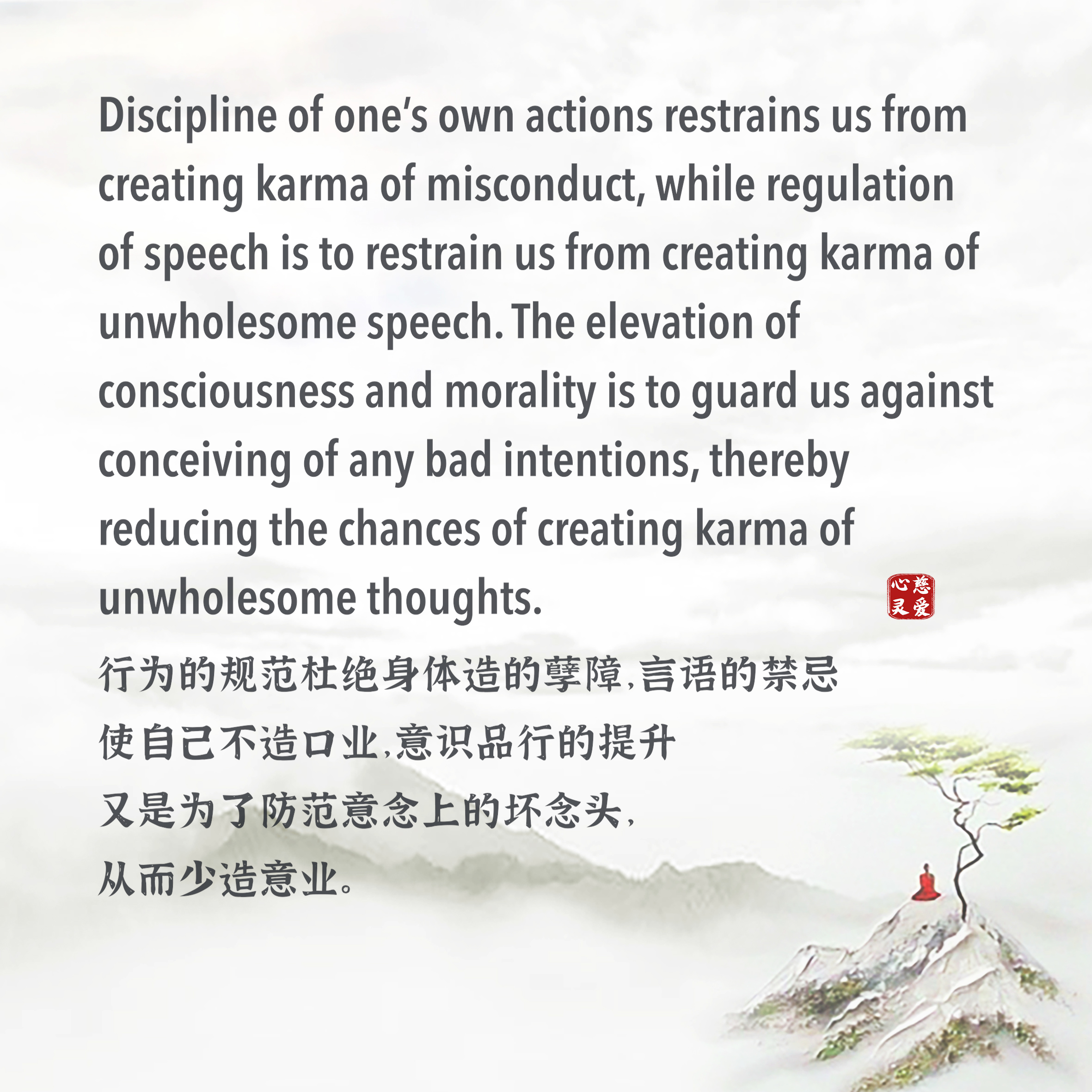
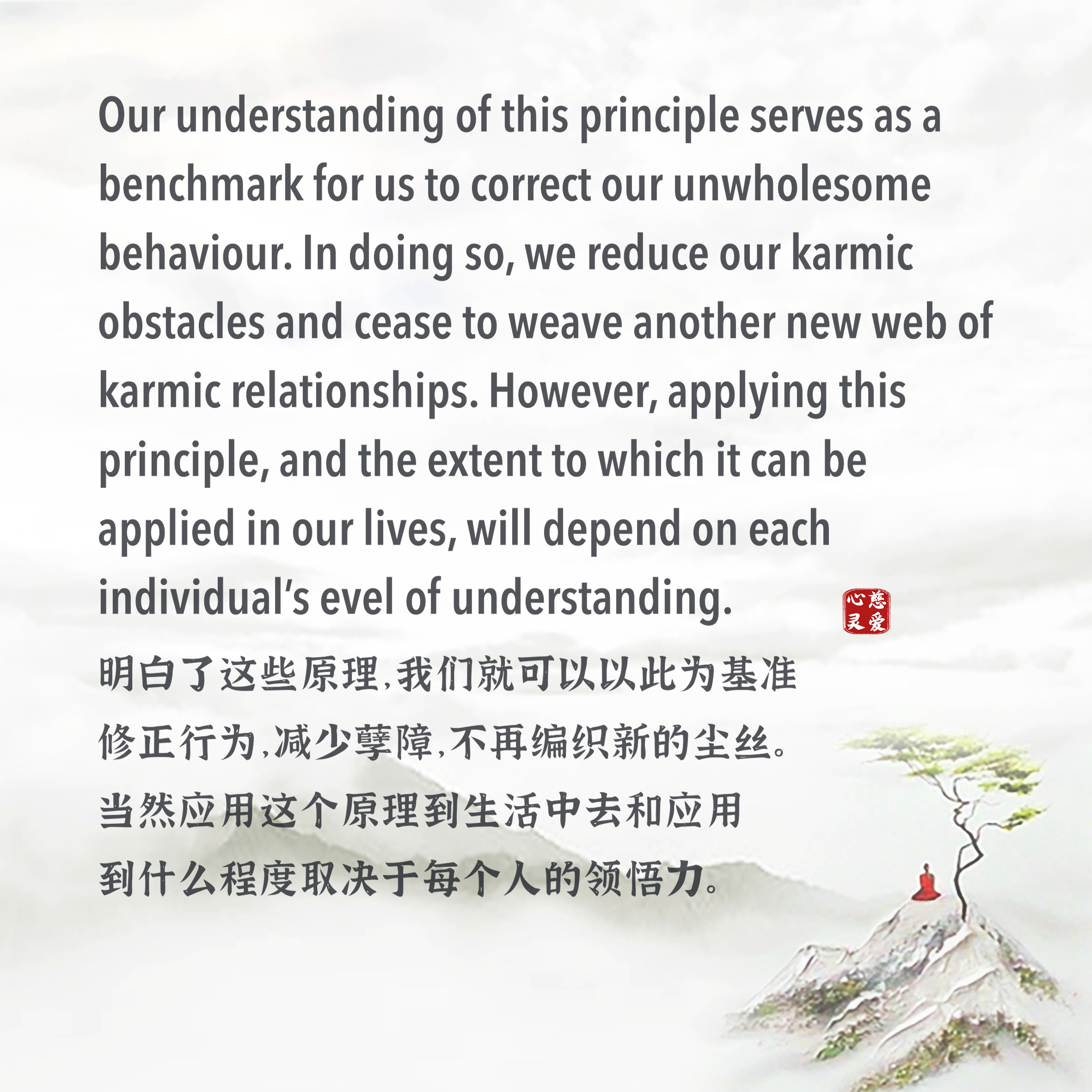
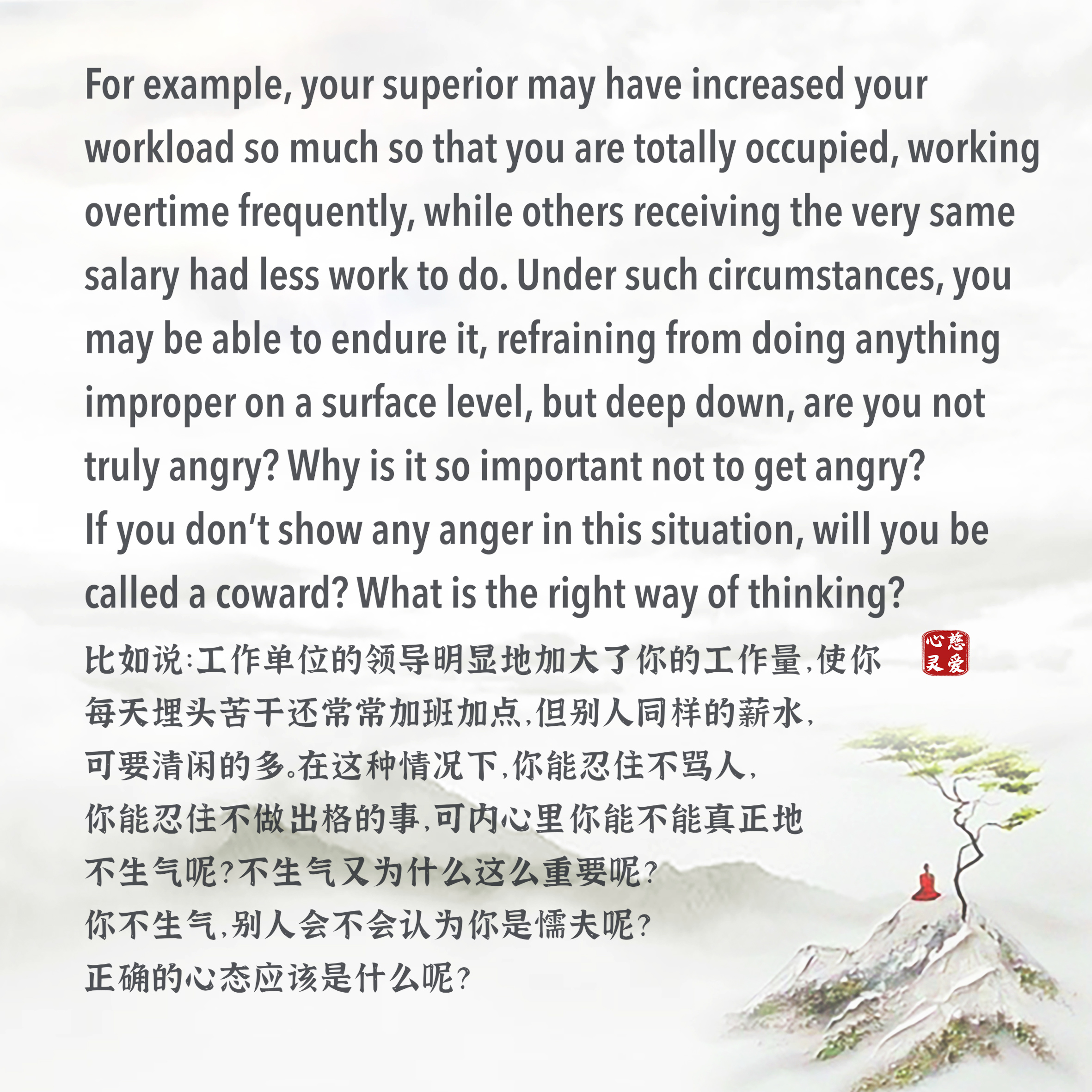
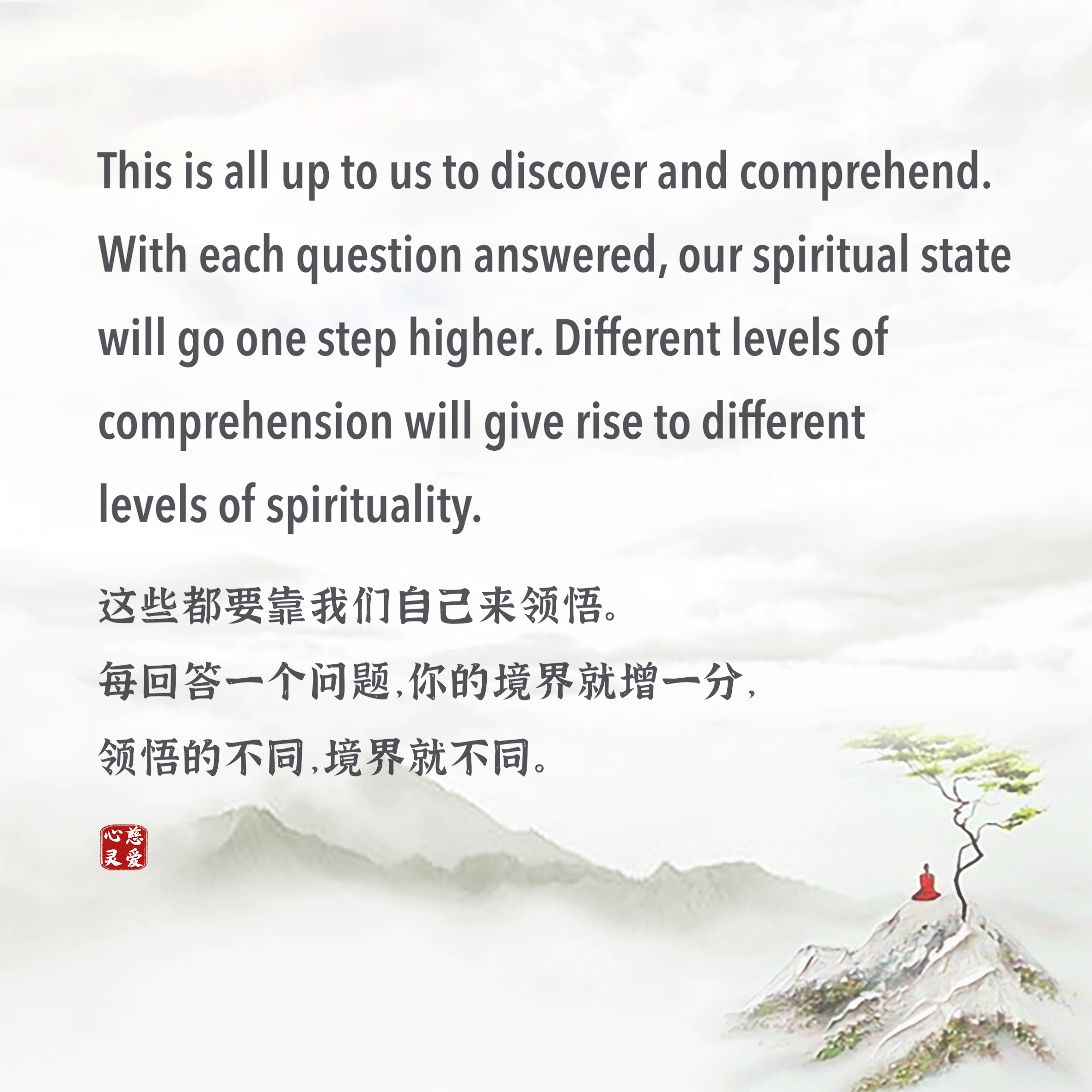
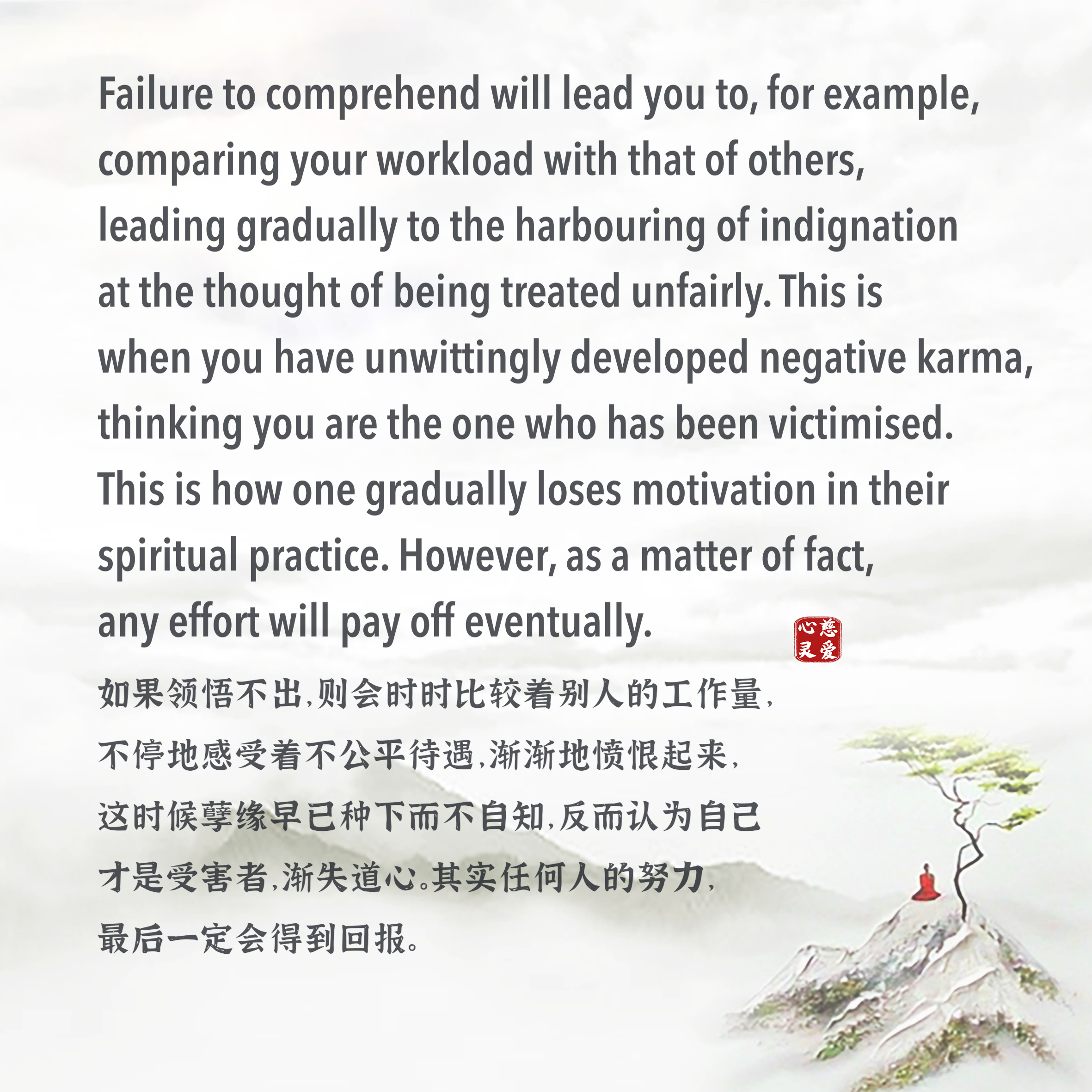
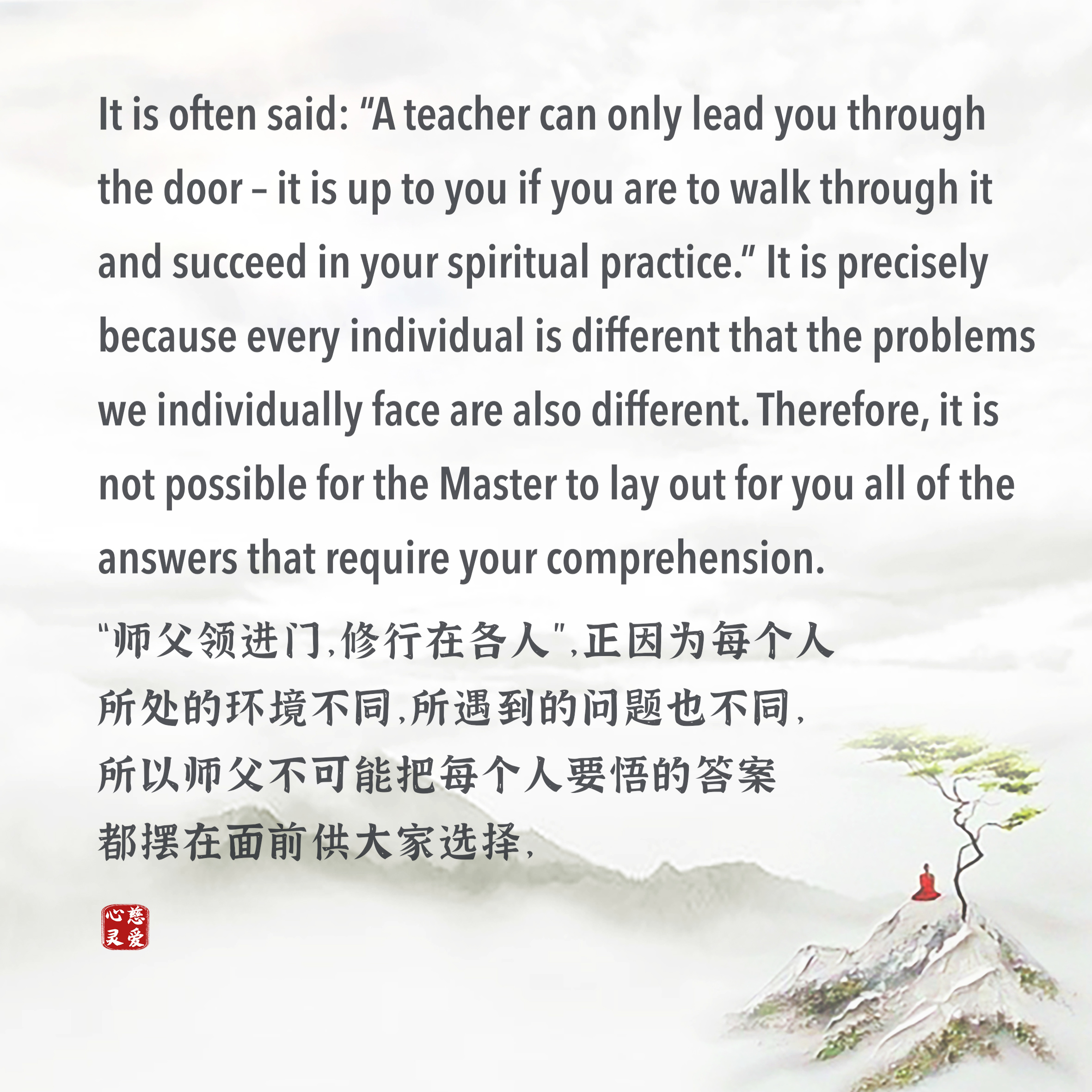
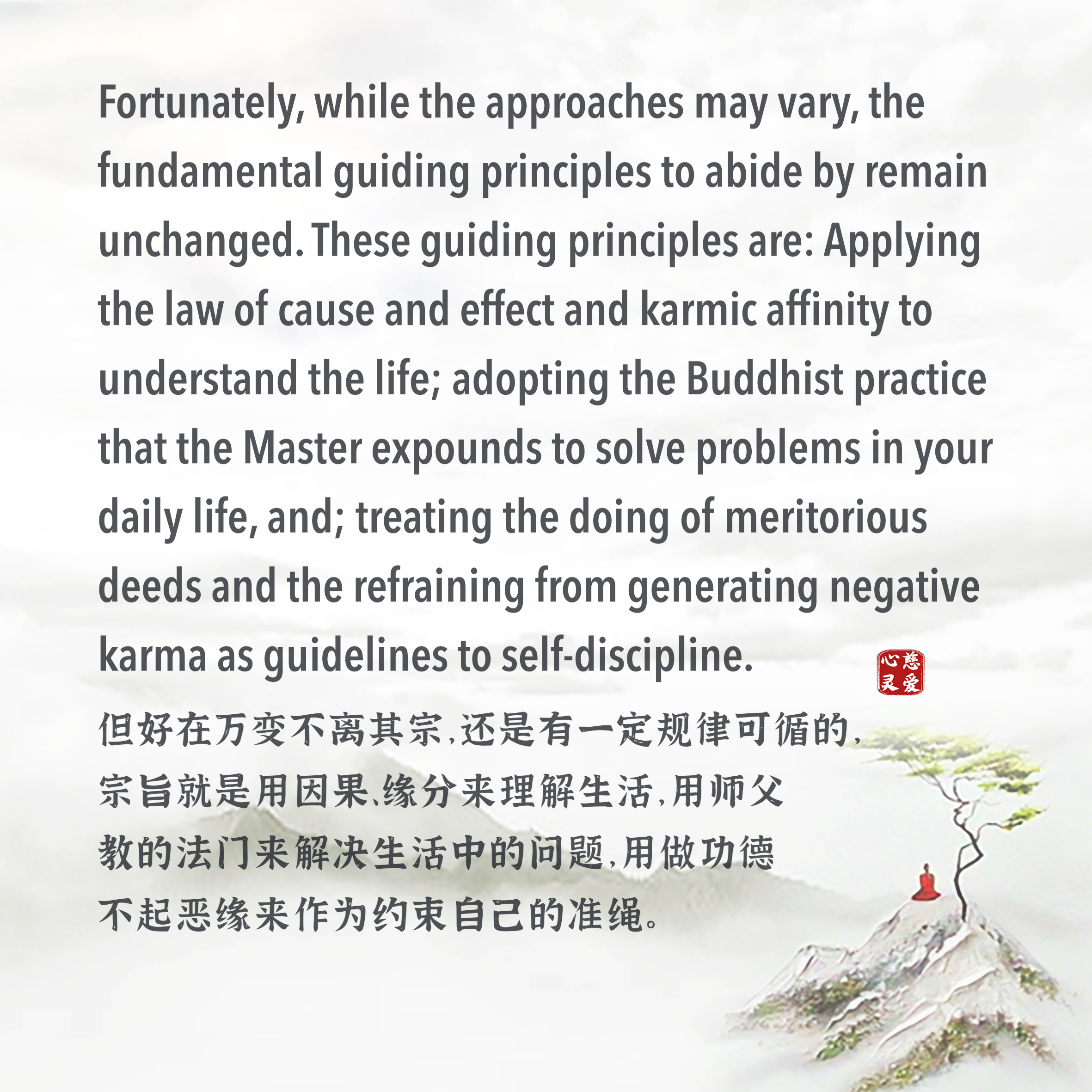
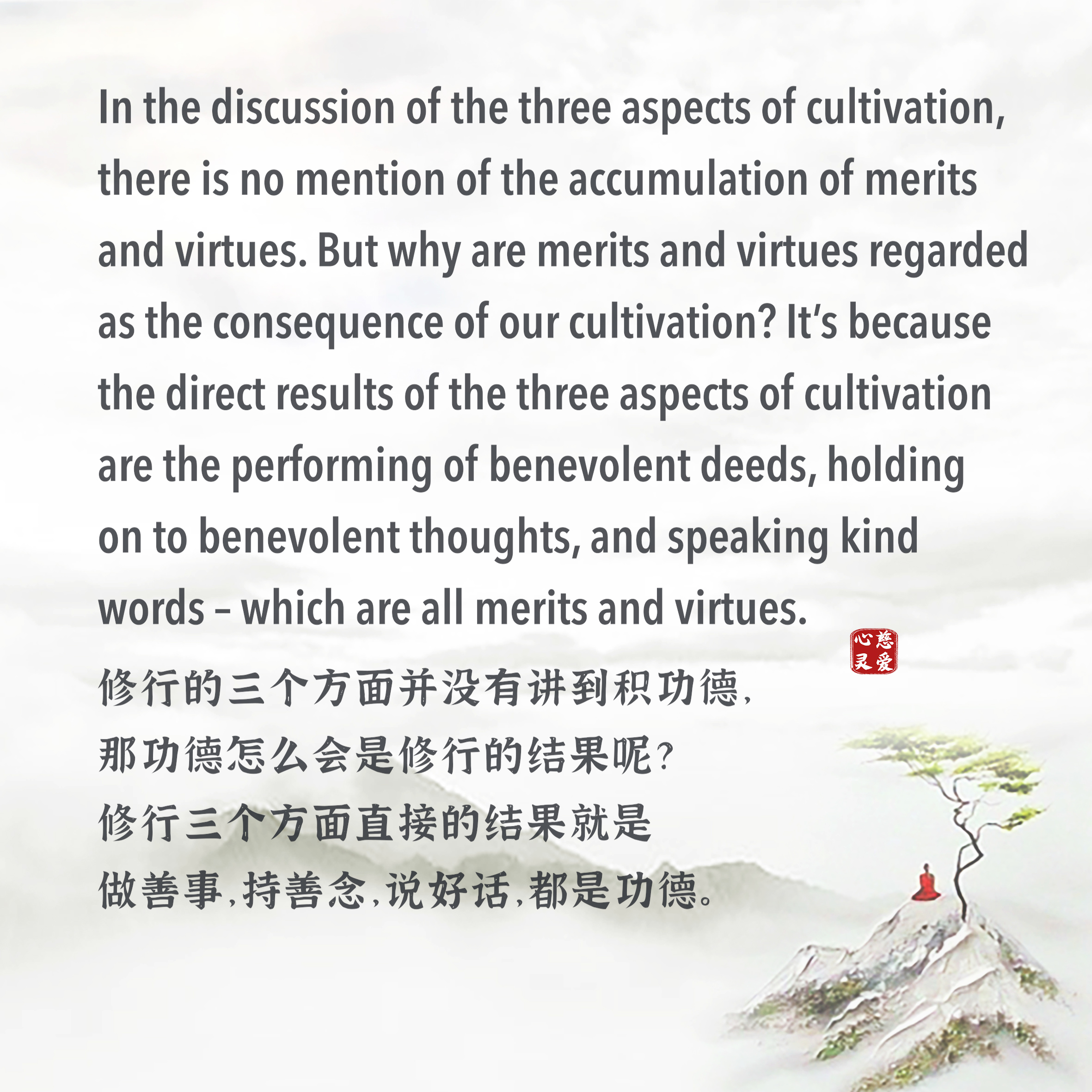
❤️师兄好,我是在线答疑助手!